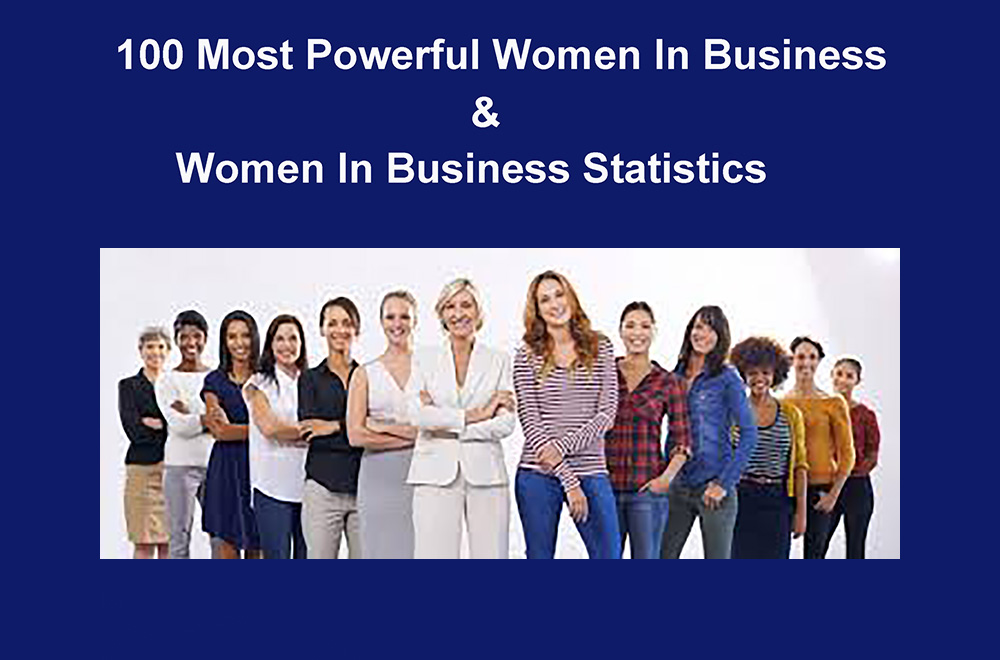
Disclaimer
(Since writing this article some roles have changed and there may be some inaccuracies, please do your own research regarding women in business).
Reasons why women do not go into business.
Heard the saying “This is a man’s world”, well things are changing Long have the days gone when women were supposed to be the housewives and the men the breadwinners? However, in Eastern countries, it is still expected that the women stay at home, whilst the man goes out to provide for his family. Our cultural upbringing shows how women have been treated throughout the ages and what is expected of them. More and more women around the world are starting to stand up for their rights and their equality. Men should not be in a position to dictate but to accept that a woman can do the same job if not better.
The main reason why women do not go into business is because:
1). It is a cultural problem where the woman’s place is in the kitchen and in the bedroom (Sexist ideology, not mine may I add) You may be shocked by my allegations but in Saudi Arabia, this is the norm. Women are suppressed and must have legal guardianship such as a father, brother, uncle, son, or spouse that dictates to them what they can and can’t do. They are not given the same opportunities as men in the workplace. Women do not have a free movement like their Western counterparts. Women are not deemed equal and often are discriminated against. Furthermore, although not as extreme if you consider Western women also face problems of discrimination as raising a family may interfere in a career move and are often not considered for these roles for those reasons. Women are more reluctant to be their own boss because of family commitments.
Difficulty Getting Finance
2) Women also find funding more difficult as the men who control the purse strings usually bank managers do not encourage women’s entrepreneurship. A group of women Samantha Cameron, Mary Portas, and Karren Brady, submitted an open letter to the Government, highlighting the chronic and unfair finance gap faced by female entrepreneurs. It has been found that around one-third of women say access to funding was their biggest barrier to starting a business, compared to 20% of men. A similar proportion of state funding is a barrier to expanding an existing business. (Rose Review of Female Entrepreneurship, HM Treasury 2019).
Women are less likely to be considered for a loan or private equity investment because it is perceived that women are less trustworthy, with male entrepreneurs receiving 86% domination more venture capital. However, when women secure investment, women’s businesses show returns of 20 percent more revenue with 50 percent less money invested (Untapped Unicorns, Female Founders Forum/ Barclays 2017) The reason for this is women are more careful with their money and take less risks.
10% of women are more likely to see finance as their only barrier to entrepreneurship, rather than men.
Recent evidence from the UK Survey of SME Finances reported that women were charged more than men on term loans (2.9% vs. 1.9%). (You don’t say…… and I wonder how that could possibly have happened when we are supposed to live a fair and transparent world…..me being sarcastic) No other study has found such a large difference in loan terms, and this result needs further research and explanation (ibid Carter & Shaw 2006).
Social and psychological barriers and bias against women
3) From my own experience, I have been told to leave it to the boys in the past as I will lose the client because he is biased towards women and will not take me seriously. So regardless if you are in an office environment it is not always your colleagues that are the problem but the social block of other cultures coming from the client’s perspectives. So although there is no evidence to suggest women can perform poorly to men it all boils down to culture.
Fear of failure
4) Only 1 in 8 women start-ups’ in the UK because of psychological barriers, mainly to do with financing. The thought of failing and then being ridiculed by a spouse or partner can be too much to bear. Imagine the “I told you so” scenario in which you must eat humble pie. Compared to men women find it difficult to start again and take risks. So although there may be six million businesses currently active in the UK, just 20% are run by female entrepreneurs. Women were 55% more likely than men to fear going it alone as a primary reason for not starting a business. (Rose Review of Female Entrepreneurship, HM Treasury 2019) It has been discovered that 39% of women are deemed as confident in their capabilities of starting a business themselves compared to 55% of men. This is a perceived figure in ability, rather than an actual one in skill sets. (Rose Review of Female Entrepreneurship, HM Treasury 2019)
Networking and Mentors
5) I do not have a mentor per se but I do follow one particular woman in the UK called ‘Baroness Michelle Mone’. I have never met her but I do admire her and one day aspire to meet her acquaintance.
I have been following her on LinkedIn https://www.linkedin.com/in/michellemone/ and have read her book which is very inspiring.
This women is a superwoman in my eyes with all the trauma she endured and struggles but came out smelling of roses on the other side. “Baroness Michelle Mone” is an entrepreneur and an MP for Scotland who was awarded an OBE, she was also the founder of a Lingerie Company called ‘Ultimo’ which she later sold and now does Motivational Speaking and owns a tanning company called ‘Utan’ she also designs jewelry on QVC and does interior design.
Baroness Michelle Mone’s website is: https://michellemone.com
Women need women to give them moral boosts of encouragement. Women understand women and find it easier to discuss business with other women. Finding a mentor can be difficult and costly and there are not many considering how many women are in business. Try joining groups on social media rather than membership sites, unless you can afford it that is. Do however go to network events that may cost you about £25 for Business Breakfast or Canapes & Cocktails Event in the evening.
Women find it also difficult to network as they need to have a lot of connections in order to find the right kind of people. But like I said before times are changing and the internet is evolving so eventually business will be conducted online. LinkedIn is one of my favourite portals for finding connections and there are plenty of groups to join. So, marketing yourself is the first step to connecting with like-minded people.
I personally do not have a problem connecting with both men and women. The internet is a God save to meeting people for real. I have successfully done business with people without having to meet them in person. You do need to be available for a chat on the phone or a video meeting, this shows transparency and shows that you are approachable and trustworthy.
Growing a family whilst working
6) Sometimes weighing up the pros and cons of running a business and juggling family life can be off-putting because if a woman has to care for the children meaning taking them to school and dropping everything if they fall ill, this can have adverse effects on a business. However, having backup plans can save an entrepreneur in difficult times. Some women pay for childcare whilst others try to do it alone both juggling their careers with their family obligations. I brought up my child on my own without paying for childcare, whilst also growing my business.
It stands to reason that women are twice as likely as men to mention family responsibilities as a barrier to starting a business, this is because 9 times out of 10 women being the mother, or primary carer of her family will see that her family comes first and business comes second. In addition, for female entrepreneurs with children, primary care responsibilities result in another barrier to further business success, with 46% of female parent entrepreneurs identifying it as a “very important” barrier versus 33% of male parents with businesses. (Rose Review of Female Entrepreneurship, HM Treasury 2019), The reason for this is that men running businesses who have a life partner who they will rely on to be the caregiver, that person will look after their children otherwise if they are lone parents they may hire childcare to overcome the barrier. Men will never try to juggle both business and family life without getting childcare.
Maternity can also play a crucial role in the failure and success of a business and running a business whilst pregnant can be very stressful. Tell me about it, I’ve done that and got the T-shirt. It can be a particular challenge for women entrepreneurs and small business owners, as the legal framework and protections available for employees do not apply (although the self-employed may be able to claim Maternity Allowance). (Women’s Business Council, Enterprise Evidence Paper, BIS 2012). However, running a business whilst nurturing a newborn can be extremely challenging. Pregnant female entrepreneurs are less likely to plan to take any time off as formal maternity leave (Rouse 2009). This is true as I never took any time off work either and brought my baby to the office on numerous occasions.
Facts about women in business
Even though the UK may be the start-up capital of Europe, the number of women starting up or expanding their businesses remains very low. As mentioned above certain factors stop women from following their dreams. Women account for 17% of business owners in the UK.
If women started to build their own businesses it is said that up to £250 billion of new value could be added to the UK economy.
According to (Chief Executive of the Small Business Service, Martin Wyn Griffith, Speaking at the National Dialogue for Entrepreneurship, Washington DC, March 2005), a GBP pound sterling invested in developing women’s enterprise provides a greater return on investment than a pound invested in developing male owned enterprise. (At least Martin is on our side).
When it comes to obstacles, it has been found that women were nearly five times more likely to mention family reasons for becoming self-employed than men. Women think that working from home whilst looking after their children is less stressful than working for an employer. Women can choose the hours they wish to work and can drop things at a moment’s notice if a child becomes sick. A fifth of females chose to work as self-employed to help combine ‘family commitments/wanted to work at home’ and employment in a flexible manner. Conversely, men were almost twice as likely to say that one of the reasons they became self-employed was to ‘make more money’ than women. (ONS Regional Trends, Women in Business 2009).
The statistics show an average of about 30% of self-employed women and 8 percent of men work at home. (ibid ONS 2009). More than half of self-employed women (53%) work part-time compared to 17% of self-employed men. (ONS Labour Market Statistics, September 2014)
I used to use an accountant until I suspected he was not doing his job so I fired him. So now I do my own books and plan to hire an accountant once my business expands.
However, a majority of female-owned businesses are more likely to use an accountant than the majority of male-owned businesses and less likely to use no external advice than the majority of male-owned businesses (Dr Stuart Fraser, Finance for Small and Medium-Sized Enterprises, 2005).
I am forever learning and there are many self-employed webinars on the HMRC website to get useful information on accounting from. It is said that 38% of women in the UK compared to 3% in Europe will take advice from services, banks, and government websites for business support. Women are more likely to do business training and research than men.
I did a business course in my 20s in College and some of the skills have proven to be invaluable in my life now even though at the time I never thought I would be an entrepreneur. Entrepreneurship training is three times more likely to improve self-confidence about having the right skills to run a business. (GEM Special Report: A Global Perspective on Entrepreneurship Education and Training, 2010).
Young Entrepreneurs
Schools do not teach youngsters to be entrepreneurs. But with social media influencing young people are being taught they too can be successful entrepreneurs and they are starting to take advantage and making their very first steps in becoming business owners.
From makeup tutorials on YouTube to vlogging, ghost hunting, and gaming youngster are getting the taste of being their own bosses.
These youngsters are called ‘Millenials’ Among the younger age groups, 18 to 24 and 25 to 34, female entrepreneurship is still half of the male entrepreneurship, but the picture amongst students is more promising with more people learning that being a social influencer, in fact, has made many youngsters millionaires it only goes to show that other youngster will follow suit. Amongst the 18-24 age group are most likely to think that entrepreneurship is a good career move and that it has a high status in society (84% compared to the 75% in the next age group) ( ibid Enterprise Insight 2005).
Entrepreneurial activity amongst people with no formal education is very high in the 18-24 year old age group (14.2%). In particular the 18-24-year-old age group, entrepreneurial activity is twice as high in this category as it is for any other qualification level. (ibid GEM, London Business School 2004).
Students who go on to further education are equally likely to participate in school-enterprise education, however, 50% of males are more likely than females to be interested in starting their own business as a result of their education.
- Angela Merkel – German politician who has been Chancellor of Germany
- Christine Lagarde – President of the European Central Bank
- Nancy Pelosi – Congress woman of the United States White House
- Ursula von der Leyen – President of the European Commission
- Mary Barra – CEO of General Motors Company
- Melinda Gates – Co-founder the Bill & Melinda Gates Foundation
- Abigail Johnson – CEO Fidelity Investments
- Ana Patricia Botín – Executive Chairwoman of Santander Group
- Ginni Rometty – Executive Chairman of IBM
- Marillyn Hewson – Chairwoman Lockheed Martin
- Gail Boudreaux – President and CEO of Anthem Inc.
- Susan Wojcicki – CEO of YouTube
- Isabelle Kocher – CEO of Engie
- Safra Catz – CEO of Oracle Corporation.
- Kristalina Georgieva – Acting President of the World Bank Group
- Julie Sweet – CEO of Accenture
- Emma Walmsley – CEO of GlaxoSmithKline
- Sheryl Sandberg – COO of Facebook, the founder of LeanIn.Org
- Ruth Porat – CFO of Alphabet Inc.
- Oprah Winfrey – American talk show host, tv producer, and actress
- Judith McKenna – CEO of Walmart International
- Jessica Tan – SingaporeanMember of Parliament for East Coast GRC
- Ho Ching – CEO of Temasek Holdings
- Phebe Novakovic – CEO of General Dynamics
- Shari Redstone – Chairwoman of ViacomCBS
- Amy Hood – CFO at Microsoft Corporation
- Stacey Cunningham – 67th President of the (NYSE)
- Jessica Uhl – CFO of Royal Dutch Shell
- Sheikh Hasina Wajed – 10th Prime Minister of Bangladesh
- Adena Friedman – President and CEO of Nasdaq
- Mary Callahan Erdoes – Chief Executive Officer of JPMorgan Chase
- Jane Fraser – President, Citigroup
- Laurene Powell Jobs – Founder of Emerson Collective
- Nirmala Sitharaman – Minister of Finance and Corporate Affairs of India
- Marianne Lake – CEO of Consumer Lending, JPMorgan Chase
- Gina Rinehart – Mining magnate; company Chairwoman Hancock Prospecting
- Kathy Warden – President and CEO of Northrop Grumman
- Jacinda Ardern – Prime Minister of New Zealand
- Anne Finucane – Vice chair of Bank of America
- Queen Elizabeth II – Queen of the United Kingdom
- Tsai Ing-wen – President of the Republic of China
- Ivanka Trump – Advisor to the President Donald Trump & Daughter
- Rosalind Brewer – COO of Starbucks
- Mingzhu Dong – Chairwoman of Gree Electric
- Erna Solberg – Prime Minister of Norway
- Dana Walden – Chairwoman of Disney Television Studios
- Vicki Hollub – CEO of Occidental Petroleum
- Jennifer Salke – CEO of Amazon Studios
- Jennifer Morgan – CEO of SAP SE.
- Nicola Sturgeon – First Minister of Scotland
- Donna Langley – Chairwoman of Universal Pictures
- Nguyen Thi Phuong Thao – President & CEO, VietJet Air
- Elvira Nabiullina – Chairwoman of the Bank of Russia
- Roshni Nadar Malhotra – Chairperson HCL Enterprise,
- Gwynne Shotwell – President and Chief Operating Officer of SpaceX
- Tricia Griffith – CEO and President of Progressive
- Maggie Wei Wu – CFO of Alibaba Group
- Feng Ying Wang – CEO and Deputy Chairwoman of Great Wall Motor.
- Lynn Good – CEO of Duke Energy, a Fortune 500 Company
- Paula Santilli – CEO, PepsiCo Latin America, PepsiCo
- Rihanna – Barbadian singer, songwriter, actress, and philanthropist
- Melanie Kreis – CFO of Deutsche Post
- Hooi Ling Tan – COO of Grab Holdings Inc
- Bonnie Hammer – Chairwoman, NBCUniversal Content Studios
- Kiran Mazumdar-Shaw – Managing Director of Biocon Limited
- Beyoncé Knowles – Singer, Songwriter, Record Producer, Actress
- Zhou Qunfei – Founder and CEO of Lens Technology
- Sophie Wilmes – Prime Minister of Belgium
- Jane Jie Sun – CEO of the Trip.com Group
- Katharine Viner – Editor-in-Chief at The Guardian
- Taylor Swift – Singer-Songwriter, Businesswoman
- Judy Faulkner – CEO and Founder of Epic Systems
- Güler Sabanci – CEO of Sabancı Holding
- Kathleen Kennedy – Film Producer, President of Lucasfilm
- Mette Frederiksen – Prime Minister of Denmark
- Sri Mulyani Indrawati – Minister of Finance of Indonesia
- Andrea Marques de Almeida – CFO of Petrobras
- Solina Chau – Director of the Li Ka Shing Foundation
- Ava DuVernay – American filmmaker
- Zuzana Caputova – President of Slovakia
- Serena Williams – American professional tennis player
- Mary Meeker – American Venture Capitalist
- Lam Wai Ying – Co-Owner of Biel Crystal Manufactory
- Raja Easa Al Gurg – Managing Director of Easa Saleh Al Gurg Group
- Eliza Manningham-Buller – Director General of MI5
- Jenny Lee – Labour Member of Parliament
- Lee Boo-jin – Chief Executive of Hotel Shilla
- Ana Brnabic – Prime Minister of Serbia
- Meg Whitman – CEO of Quibi
- Reese Witherspoon – Actress, Producer, Entrepreneur
- Anne Wojcicki – CEO of the Personal Genomics company 23andMe
- Aileen Lee – Founder of Cowboy Ventures
- Sahle-Work Zewde – President of Ethiopia
- Dominique Senequier – President of Ardian (Formerly Axa Private Equity)
- Kirsten Green – Founder and Managing Partner of Forerunner Ventures
- Renuka Jagtiani – Chairwoman and CEO of Landmark Group
- Rania Nashar – CEO of Saudi commercial bank, Samba Financial Group
- Amina Mohammed – Deputy Secretary-General of the United Nations
- Margarita Louis-Dreyfus – Chairperson of Louis Dreyfus Group
- Greta Thunberg – Swedish Environmental Activist
Final thoughts.
Although we have great women of power not all are founders and you have heard the expression “Behind every great man there is a great woman”, these women are notable for roles other than owners of companies. These roles as CFOs or Executives are all very important in their own right and without CFOs and CEO, companies cannot scale. These women are on the Boards of Directors and they get a percentage of equity of the business.
These women on this list are successful in their own right for the roles they play and without them, the companies would not be where they are today.
We can only aspire to be like them and make a difference in the world by empowering ourselves and others.
Further Reading
ADVERTISEMENT
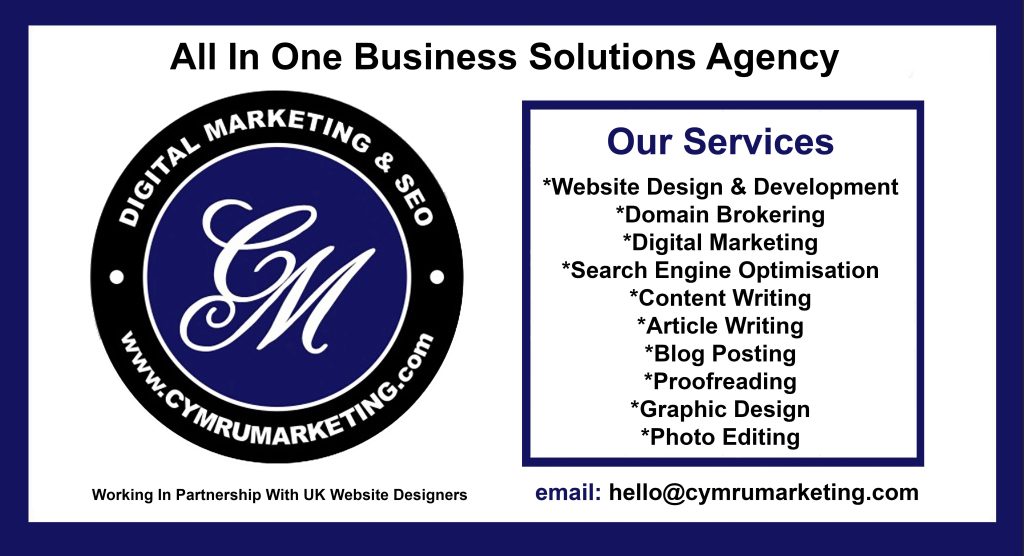
#womeninbusiness #entrepreneurship #greatwomen #unicorns #womenentrepreneurs

Cymru Marketing Journal (CMJUK) Offers Digital Marketing, Content Writing, Website Creation, SEO, and Domain Brokering.
An open platform that invites contributors and domain sellers serves as a dynamic marketplace where a diverse range of talents and offerings can converge. This platform acts as a collaborative space where individuals or businesses can share their expertise, creativity, and products with a broader audience.
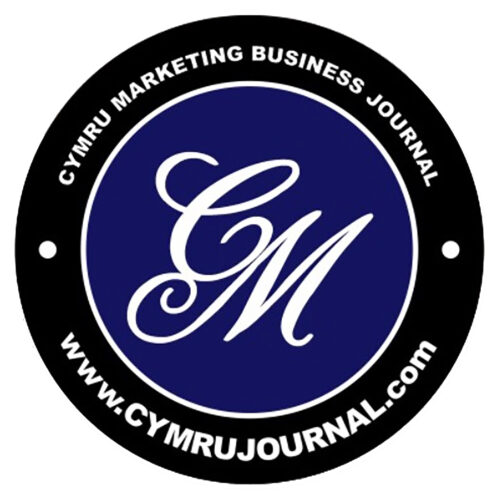
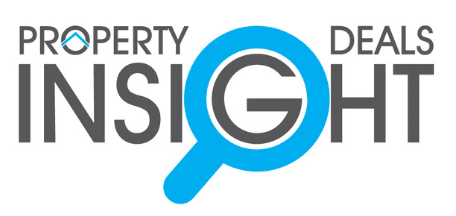
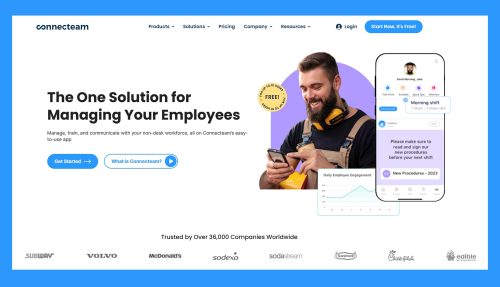
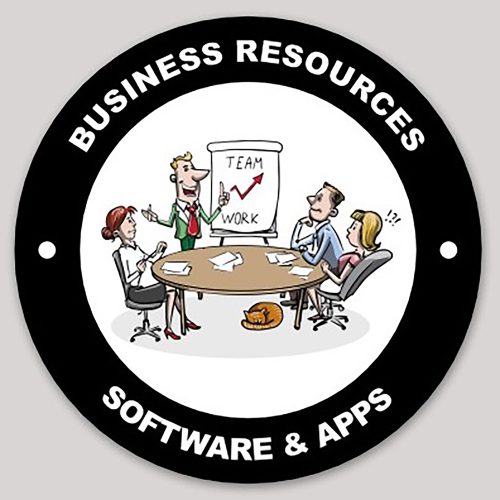







Leave a Reply
You must be logged in to post a comment.